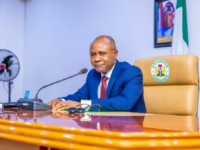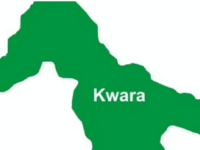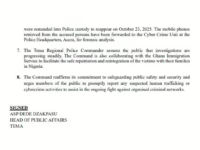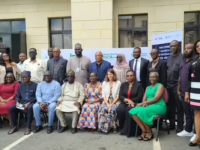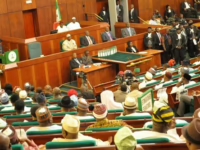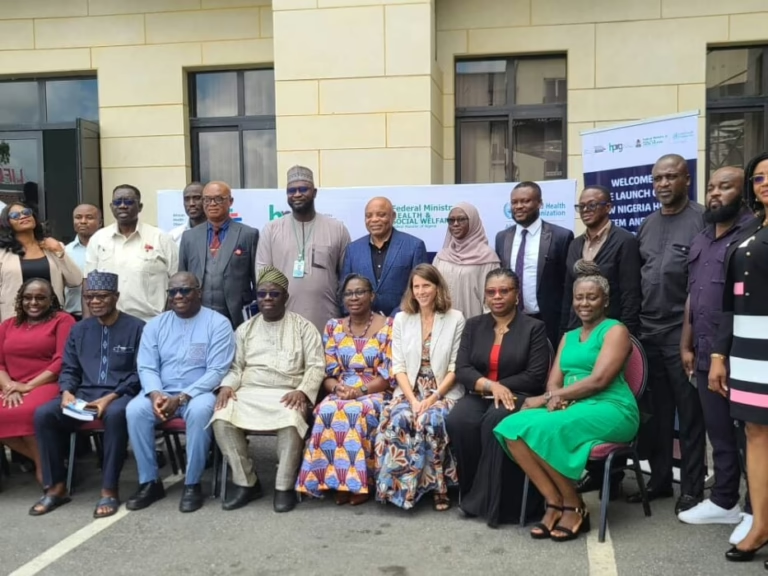A recent comprehensive analysis of Nigeria’s healthcare landscape has brought to light significant obstacles hindering the sector’s progress, such as inadequate infrastructure, insufficient funding, governance challenges, and ongoing disparities in access to quality medical services.
Marking a milestone, Nigeria has become the first African nation to develop a detailed Country Health System and Services Profile (CHSSP).
This extensive 295-page document, collaboratively created by the WHO African Region and the University of Nigeria’s Health Policy Research Group (HPRG), cautions that without swift and decisive reforms, Nigeria risks falling short of achieving the Sustainable Development Goals (SDGs) related to health and universal health coverage (UHC).
During the launch event of the CHSSP 2025 in Abuja, the Federal Ministry of Health and Social Welfare emphasized that the challenges identified are not insurmountable.
Health Minister Professor Ali Pate highlighted that overcoming these issues demands coordinated efforts from multiple stakeholders. He noted that the Nigeria Health Sector Renewal Investment Initiative (NHSRII), introduced under President Bola Tinubu’s administration, is designed to tackle these systemic problems.
Represented by Dr. Kamil Shoretire, Director of Health Planning, Research, and Statistics at the Ministry, the government outlined its commitment to addressing the low public health expenditure, the heavy reliance on private healthcare providers, and the burden of high out-of-pocket costs through ongoing reforms.
“In August 2024, we initiated the Sector-Wide Approach (SWAp) with an investment of 1.2 billion U.S. dollars,” he explained.
“SWAp brings together all key players-government bodies, development partners, civil society, and private sector actors-under a unified framework characterized by One-plan, One-Budget, One-Conversation, One-Monitoring & Evaluation, and One-Report.”
“This integrated coordination is vital to enhance efficiency and maximize the impact of our health interventions,” he added.
Dr. Shoretire further revealed that efforts to expand universal health coverage by 2030 have led to an increase in enrollment in the National Health Insurance Scheme from 16.7 million to over 19.4 million within the last year. Additionally, the government is bolstering primary healthcare through the Basic Health Care Provision Fund, which saw disbursements rise from N80 billion in 2024 to a projected N298.42 billion in 2025.
“The Presidential Initiative aimed at unlocking the Health Care Value Chain has generated a project pipeline worth 5 billion U.S. dollars and attracted 2 billion in foreign investments,” he stated.
Professor Obinna Onwujekwe, Director of Nigeria’s National Centre for AHOP and Coordinator of the Health Policy Research Group at the University of Nigeria, Nsukka, explained that the CHSSP serves as a critical evidence base to inform health policy decisions.
He described the report as an evaluation of Nigeria’s health system performance and service delivery, benchmarked against African standards to guide targeted improvements.
The findings reveal that Nigeria’s health system operates at just 45 percent efficiency, trailing the African regional average of 56 percent. Although there have been gains in service access, demand, and quality over the past decade, these improvements remain inadequate to meet the universal health coverage goals by 2030.
Moreover, Nigeria’s coverage of essential health services lags 1.7 percent behind the regional average.
The report also highlights that private healthcare providers deliver approximately 70 percent of all health services, despite owning only 35 percent of the country’s health facilities.
Alarmingly, about 80 percent of Nigeria’s health infrastructure is non-functional, severely limiting service delivery and contributing to an estimated annual loss of one billion U.S. dollars due to outbound medical tourism.
Out-of-pocket payments constitute 75 percent of total health expenditures, with only one in ten Nigerians benefiting from any form of health insurance or risk-sharing mechanism.
Beth Kveling, Senior Policy Fellow at the London School of Economics (LSE) Department of Health Policy, praised Nigeria’s leadership in health sector research, emphasizing that the CHSSP will be instrumental in guiding reform efforts and monitoring progress.
“Collaborating with the Health Policy Research Group and WHO on this profile has been immensely rewarding,” Kveling remarked. “We anticipate it will establish a foundational understanding of the health system as Nigeria embarks on a series of reforms and tracks improvements over time.”
She noted that similar profiles are being developed in Ethiopia, Rwanda, Senegal, and Kenya, with Nigeria’s pioneering work offering a valuable comparative framework for other African nations.
Addressing common challenges across African health systems, Kveling observed, “While each country has its unique context, issues such as data reliability and utilization are widespread. Often, the necessary data exists, but the challenge lies in delivering it promptly to policymakers to enable effective decision-making.”
Dr. Emmanuel Sokpo, Country Director for the Network for Equity and Development, urged citizens to recognize healthcare as a fundamental right and actively demand it.
“When individuals insist on their rights during healthcare visits or when services fall short, it compels governments and providers to respond,” he said.
“Furthermore, citizens must hold their representatives accountable by demanding action from legislators and officials. Legal accountability, including taking government and healthcare workers to court when necessary, is crucial to ensure that neglect has consequences,” he emphasized, calling for robust accountability mechanisms to enhance healthcare delivery.










